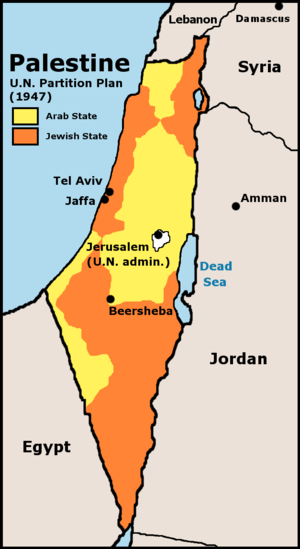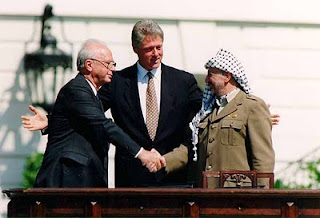When people of Tunis and Egypt, rebelled against their leaders, USA literary was the first country to support the people and asked both presidents Bin Ali and Mubarak (who both were the strongest allies of USA in North Africa and Middle East) to step down.
Prior asking why USA gave up on them so quick and easy, we have to ask why the US administrations were approving such tyrant and non democratic regimes for countless years, knowing for certain that one day time will come for people to topple them? And is it possible that such administrations were/are not aware of the fact that there can be great risk that those people will turn against the USA for supporting the regimes that were sucking their blood and bones without any mercy?
Well it is not easy to think of a proper or logic answer, but I have seriously considered several possibilities, all of them lead to an obvious fact; USA has a wrong or confusing or misleading or unpredictable, or miscalculated or devious, or strange, or weird, or camouflaged, or uncertain, or unplanned policy towards the World in general and the Middle East in particular.
No matter which of the above words you choose to define the USA policy, you end up with one result: CHAOTIC politics for sake of Israel.
Why?
Let us see.
After WW2, Britain succeeded to establish a UN vote in 1947/48 led to replace the whole country of Palestine with a new Jewish country of Israel, forcing half million Arab Palestinians to flee their homes to neighboring Arab countries.
 Image via Wikipedia
Image via WikipediaUSA recognized Israel, and did not give a damn about Palestine and Palestinians!
As a reaction, Arab countries, namely Egypt, Iraq, Jordan, Lebanon and Syria, backed by Saudi Arabian and Yemenite contingents invaded the territory of the former British Mandate of Palestine.
UN Secretary-General Trygve Lie (who was the first Secretary-General of the United Nations) characterized the Arab countries' action as "the first armed aggression which the world had seen since the end of the Second World War”!
It seemed he did not see the exodus of the Palestinians from their land.
China, meanwhile, broadly backed the Arab claims.
As a result, a truce was declared between Israel and Arab States.
In December 1948, the UN General Assembly passed Resolution 194 which declared (amongst other things) that in the context of a general peace agreement "refugees wishing to return to their homes and live in peace with their neighbors should be permitted to do so" and that "compensation should be paid for the property of those choosing not to return." The resolution also mandated the creation of the United Nations Conciliation Commission. However, parts of the resolution were never implemented, resulting in the Palestinian refugee crisis.
To correct its first mistake, USA tried to befriend with Arab States, which most of them were at that time, still under the British or French occupation.
When France, Britain and Israel attacked Egypt in 1956 to regain the control of Suez Canal, Britain and France vetoed a US-sponsored UN resolution calling for halt to military action.
 Image by dlisbona via Flickr
Image by dlisbona via Flickr Egypt led by President Nasser was able to defeat the three armies together, and affirm that the control of Suez Canal, its management and revenues are purely for Egypt and the Egyptian people.
The defeat of Britain and France in the Egyptian war, forced them to pull out their military forces from all Arab States and end a long military occupation era in the Middle East.
USA found a way to penetrate the Arab shield and gain some trust.
When in 1960 Iran, Iraq, Kuwait, Saudi Arabia, and Venezuela formed the Organization of Petroleum Exporting Nations (OPEC), USA managed to win the sympathy of those countries after huge orders put by the US Administration to buy their oils.
Of-course oil prices to USA were at that time by means of trading oil with American support to end the British Occupation and back up the new free Arab States politically, economically and military.
To make it up with Israel for not supporting its war against Egypt, the US in 1966 sold its first jet bombers to the Jewish state, breaking with a 1956 decision not to sell arms to the Jewish state!
This decision brought USA back to square zero with the Arab countries, especially Egypt. However its support to the Saudis in their conflict with Yemen, made them think that they can win the sympathy of other Arab countries.
President Nasser of Egypt had other views and supported Yemen to the extent that he sent his army to Yemen to fight against the Saudis.
In 1964, King Saud of Saudi Arabia and best friend of USA, was removed from power and his brother Faisal Bin Abdul Aziz proclaimed king. The new king continued to rely on USA for arming and training his military forces. However unlike his brother, he did not agree with USA policy in the region and its continuous support to Israel and neglect of the Arabs; the double standard policy.
Like Nasser, Israel also had different calculations and in 1967 attacked its Arab neighbors, capturing Jerusalem, the West Bank, the Sinai Peninsula, the Gaza Strip, and the Golan Heights from Jordan, Egypt and Syria.
As a result another half million Palestinians had to flee the West Bank and Gaza Strip, towards Jordan, Syria and Lebanon.
Many Syrians were expelled from Golan Heights by the Israeli Army.
USA gave unlimited and unconditional military and economic support to Israel during that war.
As a consequence, Kuwait and Iraq cut oil supplies to US.
UN adopted Resolution 242, calling on Israel to withdraw from captured territory.
Israel refuses.
This resolution remained un-fulfilled, and now it is still in the Archives of the UN.
The Americans were very clear when President's Special Assistant, Walt Rostow said in a memorandum to President Johnson, describing the US confused attachment to Israel: “The tough question is whether we'd force Israel back to 4 June borders if the Arabs accepted terms that amounted to an honest peace settlement.".
During the 1973 Arab-Israeli War (launched by Sadat of Egypt), King Faisal withdrew Saudi oil from world markets, in protest over Western support for Israel during the conflict.
The new oil revenue also allowed Faisal to greatly increase his aid and subsidies to Egypt, Syria, and the Palestine Liberation Organization.
It is a commonly-held (but so far unsubstantiated) popular belief in Saudi Arabia, also in the Arab and Muslim world that Faisal's oil boycott was the real cause of his assassination, via a Western conspiracy, his assassin having just returned from the United States?
In 1974 the UN General Assembly recognized right of Palestinians to independence. And in 1976 The UN voted on a resolution accusing Israel of war crimes in occupied Arab territories.
USA was the only country to cast a one "NO" vote.
US Ambassador to Lebanon Francis was shot to death in Beirut and the US Embassy was shut down.
Nonetheless, USA succeeded in 1978 to persuade Egypt and Israel to sign a US-brokered Camp David peace treaty.
Eighteen Arab countries imposed an economic boycott on Egypt.
America was widely hated in the Middle East.
Shah Iran was the US “buddy” in Iran and the region, but USA was not able to protect his regime when in 1979 Ayatollah Ruhollah Khomeini led a grass-roots Islamic revolution in Iran, expelling the Shah and deriding the US as "the great Satan."
Iranian students stormed US Embassy in Tehran, taking 66 American hostages for about 15 months.
All US military attempts to rescue the hostages failed.
The best USA could do was to impose sanctions!
In Egypt, Muslim militants opposed to Egypt's peace treaty with Israel assassinated in 1981 the Egyptian President Sadat, who was at that time a good ally of USA.
Contrary to Iran revolution, Egyptians with the support of USA managed to bring Hosni Mubarak as successor to Sadat.
Mubarak continued Sadat's policy in Egypt, by being an Ally to USA, keeping the Egypt/Israeli peace treaty and leading a pro-USA alliance in the region, with Saudi Arabia, Jordan, Arab Gulf countries, Tunis and Morocco.
A strong front was established in Levant, led by Hafez Assad of Syria against USA and Israel.
During that time, Lebanon was heavily engaged in a civil war that parted the country pro-Syria and pro-West.
President Assad of Syria, succeeded to control most parts of Lebanon, and strengthened the Palestinian resistance from Lebanon against Israel.
1982 Israel invaded Lebanon to expel the Palestine Liberation Organization, facilitate election of friendly government, and form 25-mile security zone along Israel's borders.
USA and other nations deployed peacekeeping troops in Lebanon.
In 1983 A truck bomb exploded in US Marines' barracks in Beirut, Lebanon, killing 241 soldiers. USA rushed to withdraw its forces from Lebanon.
President Assad returned stronger to Lebanon. However this time he was covered by a secret agreement with USA; now he can control Lebanon if he eliminates the rest of PLO forces that remained in the country. Which he did.
In 1990, leaders of Arab countries met in Taif of Saudi Arabia, and brought all the Lebanese war lords to the table. They made a peace agreement that ended the civil war, and declared a new constitution in Lebanon.
Syria and Saudi Arabia remained the sponsors and controlling powers of that agreement.
Saudi Arabia managed to bring Rafik Hariri as Prime Minister to Lebanon, which Syria un-happily accepted to keep its army in Lebanon as long as possible.
Strangely, USA did not object on keeping Syrian army in Lebanon, and asked Assad to restrain any military resistance from South Lebanon against Israel. He did, but to a certain extent.
Yasser Arafat who is by now considers Assad of Syria his worst enemy, agreed to have peace talks with Israel, which ended with a peace agreement in 1991sponsored by USA.
As a result, Israel gave back West Bank of Jordan River and Gaza Strip to Arafat, with a promise to push for a new Palestinian State soon. Obviously, soon never came.
With this, USA completed safe borders to Israel from its South, South East and South West.
However, the north borders were still at risk from Lebanon and Syria.
The Syrian-Israeli borders were amazingly calm since 1967, and continued to stay so till now.
But the Lebanese front with Israel was and still is the most dangerous and risky. Syria is still continuing to play a good role in keeping it this way, for many reasons, all of them actually have kept the Syrian regime intact so far.
In 1991 a surprising invasion of Kuwait by Iraq, made USA to lead coalition forces to free Kuwait.
US army entered Iraq, but pulled back for no real reason except what USA declared victory and liberation of Kuwait.
The Iraqi army after that launched severe attacks on Kurds and Shiites!
Strangely enough, the Shiites uprising in south Iraq aired the “Voice of Free Iraq", which was broadcasting from a CIA run radio station out of Saudi Arabia!
More strange to know that Saddam Hussein was engaged in 10 years war with Iran, and his war was supported by USA, including billions of dollars worth of economic aid, sale of dual-use technology, arms, military intelligence, special operations training and direct involvement in warfare against Iran!
In 1994 King Hussein of Jordan followed suit and signed a peace treaty with Israel.
Syria later managed to make Hamas (The defiant party against PLO) gain power in Gaza Strip, and by this the Palestinians were split in two political sects, one is pro-USA and the other is Pro-Syria and other countries like Libya and Iran.
This in fact has benefitted Israel and USA more than did to Syria!
The confused and hesitant US policy in Afghanistan, led Taliban to take control of the country, and by the time USA decided to assist its allies, mainly Ahmad Shah Massoud, who was thought to create a democratic form of government in Afghanistan, he was assassinated and two days later Al Qaeda made the famous September 11, 2001 on US soil. That attack killed nearly 4000 people, and triggered USA to invade Afghanistan.
When George W. Bush was declared president of USA, the first day he was in the White House, he ordered two Air strikes on Iraq, for unknown reasons.
Later he led a small coalition to invade Iraq, removed Saddam Hussein from power and brought Saddam’s expelled opponents, who were mainly Shiites, and most (if not all) of them are pro-Iran!
To make a balance, he managed to bring a Kurd to be the new President of Iraq.
On the other hand this confused US policy paved the way to Iran to gain extraordinary powers and maneuvering space, Iran controlled Iraq, befriended Turkey, made alliance with Syria and empowered Hezbollah in Lebanon.
These massive and swift steps of Iran panicked both USA and Israel. They both tried to make a move in 2006 by attacking Hezbollah in Lebanon aiming to destroy its military infrastructure (Like they did to PLO in 1982).
Hezbollah amazed the world by winning that war and consequently gained more political power in Lebanon.
From that moment on, USA was most hated in the region.
The confusing US policy in the Middle East confused its new president Barack Obama himself!
Today we see more attempts to topple other leaders in the Middle East, who are considered allies and friends to USA; Yemen, Jordan and Bahrain and it seems it is working out.
Amazingly, the method of toppling leaders using demonstrations and civil commotions was introduced by USA to people of Iran and Syria mainly; but it seems it is not working there, when the same method is working extra fine in the countries that having good relations with USA.
Is this confusing enough to you?
It certainly is to me?
So what is next?
Some say that Obama and his administration are not bold enough to face the challenges in the Middle East.
This can be true, but I say they also have Israel on their back, which does not allow them to think straight.
This is why USA is confusing the whole world including themselves, but not at all Israel. Not even a bit.
Sami Cherkaoui










No comments:
Post a Comment